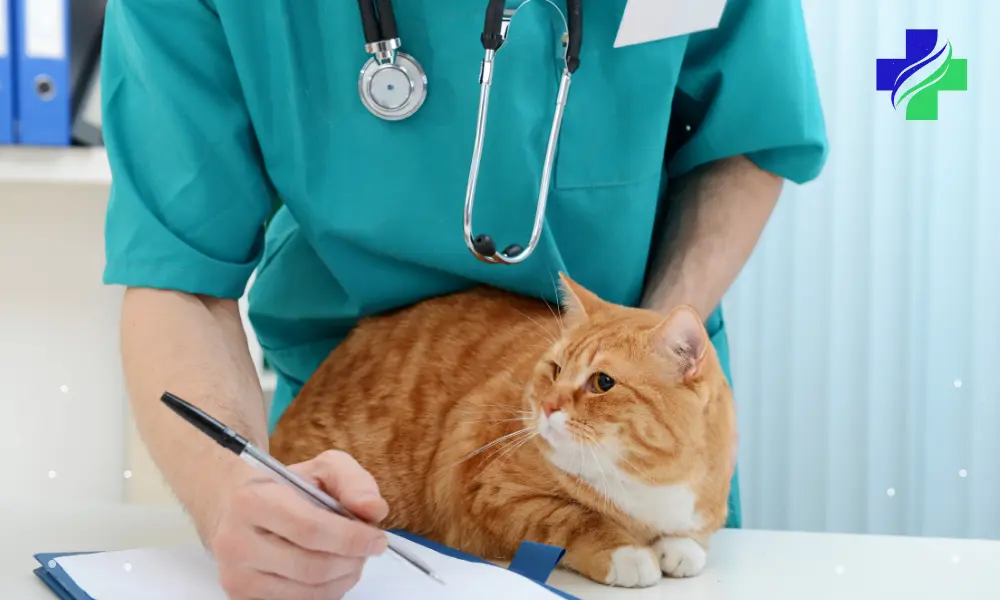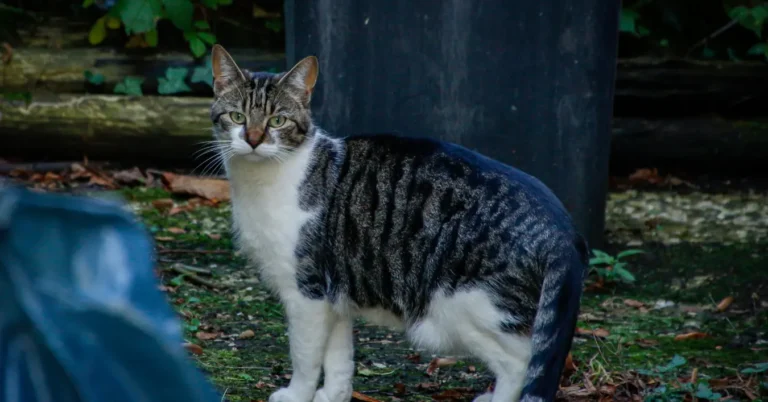How Often Do You Take a Cat to the Vet? Well, the answer to this conundrum lies in the age, lifestyle, and overall health of your feline companion. Regular veterinary check-ups are essential in maintaining your cat’s health and wellbeing, and to ensure that any potential health issues are detected and addressed in a timely manner.
A cat check-up involves a head-to-tail examination of your kitty by a veterinarian. It provides the veterinarian an opportunity to monitor the physical health of your cat and recommend preventive care products and procedures tailored to your pet’s specific needs.
For kittens less than a year old, it is advisable to take them for a routine check-up once a month starting from 8 weeks of age. During these visits, your kitten will receive multiple rounds of vaccinations to protect them from infectious diseases, and the timing of these vaccinations may vary based on your location and your kitten’s health.
Healthy adult cats between the ages of one and ten years should visit the veterinarian once a year for a routine physical exam. During these visits, your veterinarian will examine your cat’s overall health, provide necessary vaccines and booster shots, and recommend appropriate parasite protection products.
Senior cats, on the other hand, are typically considered to be those above the age of 11 years. Due to an increased likelihood of diseases and injuries in this age group, it is advisable to take your senior cat for a check-up every 6 months. Maintaining your cat’s health is a primary concern for every cat owner.
What is a Cat Checkup?

A cat checkup is a routine visit to the vet that involves a thorough examination of your pet’s overall health. During this visit, the vet will check your cat’s weight, vital signs, and general physical condition.
The vet may also perform a full-body examination, including the mouth, eyes, ears, skin, and paws. Additionally, the vet will ask about your cat’s diet, behavior, and any unusual symptoms that you may have noticed.
How Often Should Kittens See a Vet?
For kitties less than a year old, it is recommended to take them to the vet on a monthly basis starting from when they are approximately 8 weeks old. During their first year, kittens necessitate several rounds of vaccinations to secure them against frequent communicable diseases.
Kittens are particularly susceptible to certain diseases and infections, so it is recommended that they receive regular check-ups. Most veterinarians recommend that kittens receive a checkup every two to four weeks for the first few months of their life.
During these visits, the vet will perform a physical examination, provide vaccinations, and check for any signs of infection or disease. By taking your kitten to the vet regularly during this critical period, you can help ensure their overall health and well-being.
How Often Should Middle-Aged Cats See a Vet?
Middle-aged cats, typically defined as those between seven and ten years old, should receive regular check-ups every six to twelve months. During these visits, the vet will perform a physical examination and check for any potential health problems.
They will also assess the cat’s overall health, including their weight, vital signs, and any changes in behavior. This is a crucial time to catch any potential health problems early on, before they develop into serious conditions.
Adult Cat Vet Visits
Adult cats, those between the ages of one and seven, should receive regular check-ups every six months. During these visits, the vet will perform a thorough examination and check for any potential health problems.
The vet will also assess the cat’s overall health, including their weight, vital signs, and any changes in behavior. It is important to keep in mind that each cat is different, and some may require more frequent visits due to pre-existing health conditions or a high-risk lifestyle.
How Often Should Senior Cats See a Vet?
Given that numerous ailments and accidents are prevalent among senior cats, it is advisable to take them to the veterinary every half-year. This proactive approach will help in detecting and treating any issues that may arise in a timely manner.
Senior cats, typically defined as those over the age of ten, should receive regular check-ups every six months. As cats age, their bodies and immune systems become weaker, making them more susceptible to disease and illness.
How Heavy Should My Cat Be?
Normal weight of your cat is 4 – 5 kg. A cat’s ideal weight will vary depending on their breed and age, but in general, a cat should be neither too thin nor too heavy.
If you are unsure about your cat’s weight, a visit to the vet can help you determine if your cat is at a healthy weight. If your cat is overweight or underweight, the vet can provide you with a personalized plan to help your cat reach and maintain a healthy weight.
Why Do Cats Sleep So Much? Understanding Your Pet’s Sleeping Patterns
Cats are known for their love of sleeping and it is not uncommon for a cat to spend more than half of its day in slumber. However, why do they sleep so much and what is the significance of their sleeping patterns?
Cats are natural predators, and their ancestors would hunt and sleep in cycles. This sleep pattern is still present in domestic cats today, although their sleep cycles are now more influenced by their owners and the availability of food.
A cat’s sleep cycle is made up of two different types of sleep – slow-wave sleep and rapid eye movement (REM) sleep. During slow-wave sleep, the cat will appear to be in a deep sleep, with slow breathing and no movement. In contrast, during REM sleep, the cat will be more active, with rapid eye movements, twitching, and sometimes even dreaming.
It is important to understand your cat’s sleeping patterns, as changes in sleep patterns can indicate a health issue. For example, if your cat starts sleeping more during the day and is less active at night, this could indicate an underlying medical condition such as hyperthyroidism.
Bonus Read | How Often Do You Take a Cat to the Vet?
While it may seem that your cat spends a lot of time sleeping, their sleep patterns are crucial to their health and well-being. Understanding these patterns and ensuring your cat is getting enough sleep can help keep them healthy and happy.
As a feline proprietor, it is imperative to keep your furry companion in tip-top shape. Regular visits to the veterinarian are crucial for maintaining the well-being of your cat and preventing any potential health problems from exacerbating.
However, it can be challenging to determine how frequently these visits should occur. In this article, we will delve into the intricacies of feline veterinary visits and provide you with a comprehensive guide to help you determine how often you should take your cat to the vet.
First and foremost, it is essential to understand that the frequency of veterinary visits for cats can vary based on several factors such as their age, overall health, lifestyle, and any underlying medical conditions. For instance, kittens and senior cats typically require more frequent visits compared to adult cats.
Kittens require initial vaccinations and booster shots, as well as a check-up to monitor their growth and development. On the other hand, senior cats are more prone to age-related health problems, and hence, require more frequent monitoring to catch any early signs of illness.
As a responsible cat owner, it is important to regularly take your cat to the vet for checkups and ensure they are in good health. The frequency of these checkups will depend on the age and health of your cat, but generally, kittens should see a vet every few weeks, middle-aged cats should see a vet annually, and senior cats should see a vet twice a year.
It is also important to monitor your cat’s weight and sleeping patterns to ensure they are in good health. Regular vet visits and monitoring will help ensure your cat lives a long and happy life.
Another Ineresting Read: Can Cats Eat Pizza? 6 Hidden Dangers In Pizza For Cats




